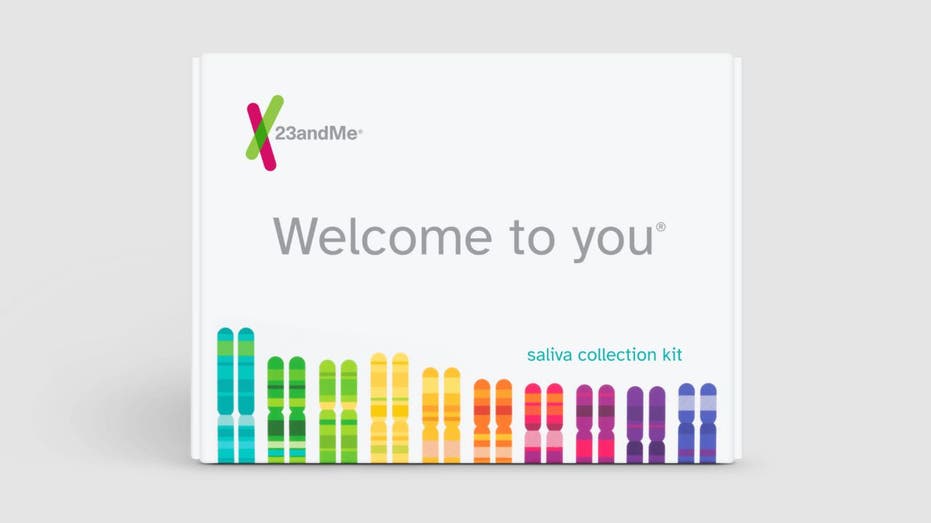- by foxnews
- 29 Mar 2025
Protect your genetic data: Urgent steps after 23andMe bankruptcy
Kurt "CyberGuy" Knutsson says 23andMe's bankruptcy raises data privacy fears: Opt out, download and delete data now.
- by foxnews
- 26 Mar 2025
- in technology

The genetic testing company 23andMe, once a pioneer in consumer DNA testing, has filed for Chapter 11 bankruptcy amid financial struggles, a leadership shakeup and growing concerns about the security of its customers' genetic data. Let's take a look at the implications of this development and some steps to safeguard your sensitive information.
23andMe's journey from a $6 billion valuation in 2021 to bankruptcy in 2025 has been marked by significant hurdles.
Despite these challenges, the company has stated that its bankruptcy filing will not affect how it manages or protects customer data. However, concerns remain about the potential sale of its assets, including sensitive genetic information.
"After a thorough evaluation of strategic alternatives, we have determined that a court-supervised sale process is the best path forward to maximize the value of the business," said Mark Jensen, chair and member of the special committee of the board of directors of 23andMe. "We expect the court-supervised process will advance our efforts to address the operational and financial challenges we face, including further cost reductions and the resolution of legal and leasehold liabilities. We believe in the value of our people and our assets and hope that this process allows our mission of helping people access, understand and benefit from the human genome to live on for the benefit of customers and patients."
Jensen continued, "We want to thank our employees for their dedication to 23andMe's mission. We are committed to supporting them as we move through the process. In addition, we are committed to continuing to safeguard customer data and being transparent about the management of user data going forward, and data privacy will be an important consideration in any potential transaction."
23andMe has assured customers that any buyer will be required to comply with applicable privacy laws. However, genetic data is a valuable asset that could be exploited if not adequately safeguarded.
Additionally, only a week and a half ago, 23andMe updated their terms and conditions, which I've reviewed. They've added an important legal disclosure that could prevent an individual from filing a lawsuit with expectations of a court trial. Instead, unless you opt out by notifying 23andme within 30 days of first use, you are automatically bound to the new terms that force parties into an arbitration path for any legal remedies that could arise now or in the future.
I strongly urge you to protect your rights by emailing arbitrationoptout@23andme.com with a clear notification that you intend to opt out of arbitration. Make sure to use the email address associated with your 23andme account. That would be the first thing you should do in my next steps that you may wish to take to protect your rights and privacy now.
If you're a 23andMe user or considering using similar services, here are steps you can take to protect your sensitive information and safeguard your data from potential misuse or theft.
1) Opt out of arbitration: If you wish to retain your right to sue the company in case of future issues, opt out of arbitration agreements by emailing your notification to opt out of arbitration arbitrationoptout@23andme.com within 30 days of first use.
2) Review privacy preferences: Regularly check your privacy and data-sharing settings to ensure they align with your comfort level.
3) Limit research participation: Disable participation in research or product development initiatives if you're concerned about how your data might be used.
4) Download and secure your data: Before considering account deletion, download your genetic record and store it securely on an encrypted device or cloud service.
5) Request data deletion: If you no longer wish for your data to be stored by 23andMe, request its deletion through your account settings. Ensure you also ask for the destruction of any physical samples.
The bankruptcy of 23andMe serves as a cautionary tale about the risks associated with sharing sensitive genetic information. While the company has pledged to maintain its privacy standards during this turbulent period, consumers must remain vigilant. By taking control of your data now, whether through enhanced privacy settings or deletion, you can better protect yourself against potential misuse in uncertain times.
Follow Kurt on his social channels:
Answers to the most-asked CyberGuy questions:
New from Kurt:
Copyright 2025 CyberGuy.com. All rights reserved.
- by foxnews
- descember 09, 2016
Flight passenger 'finally' rejects seat-swap request, triggers social media debate
A flight passenger said they denied a flyer's request to switch seats and sit next to her husband, sparking a debate about seat swappers. An etiquette expert weighs in.
read more





